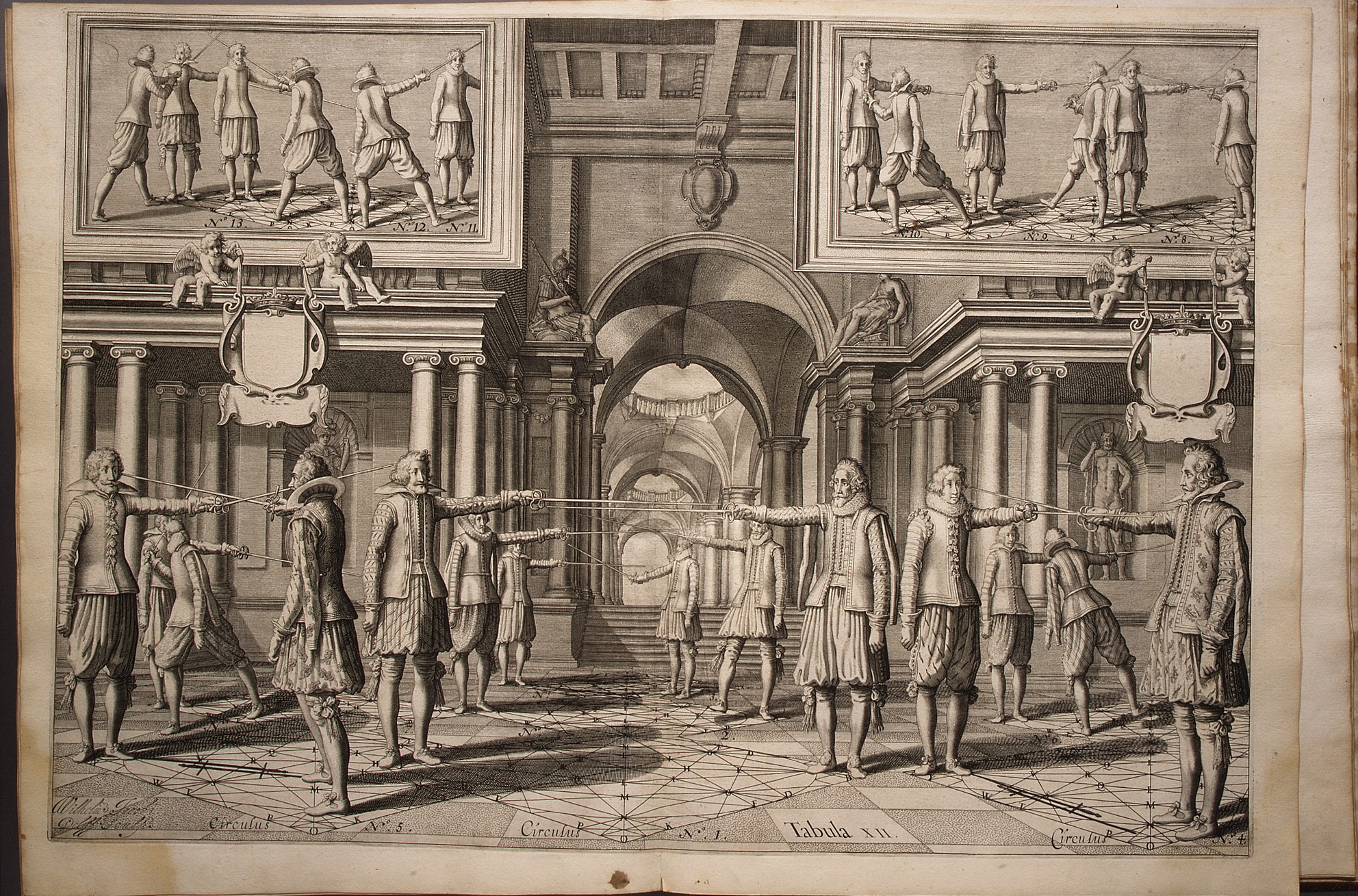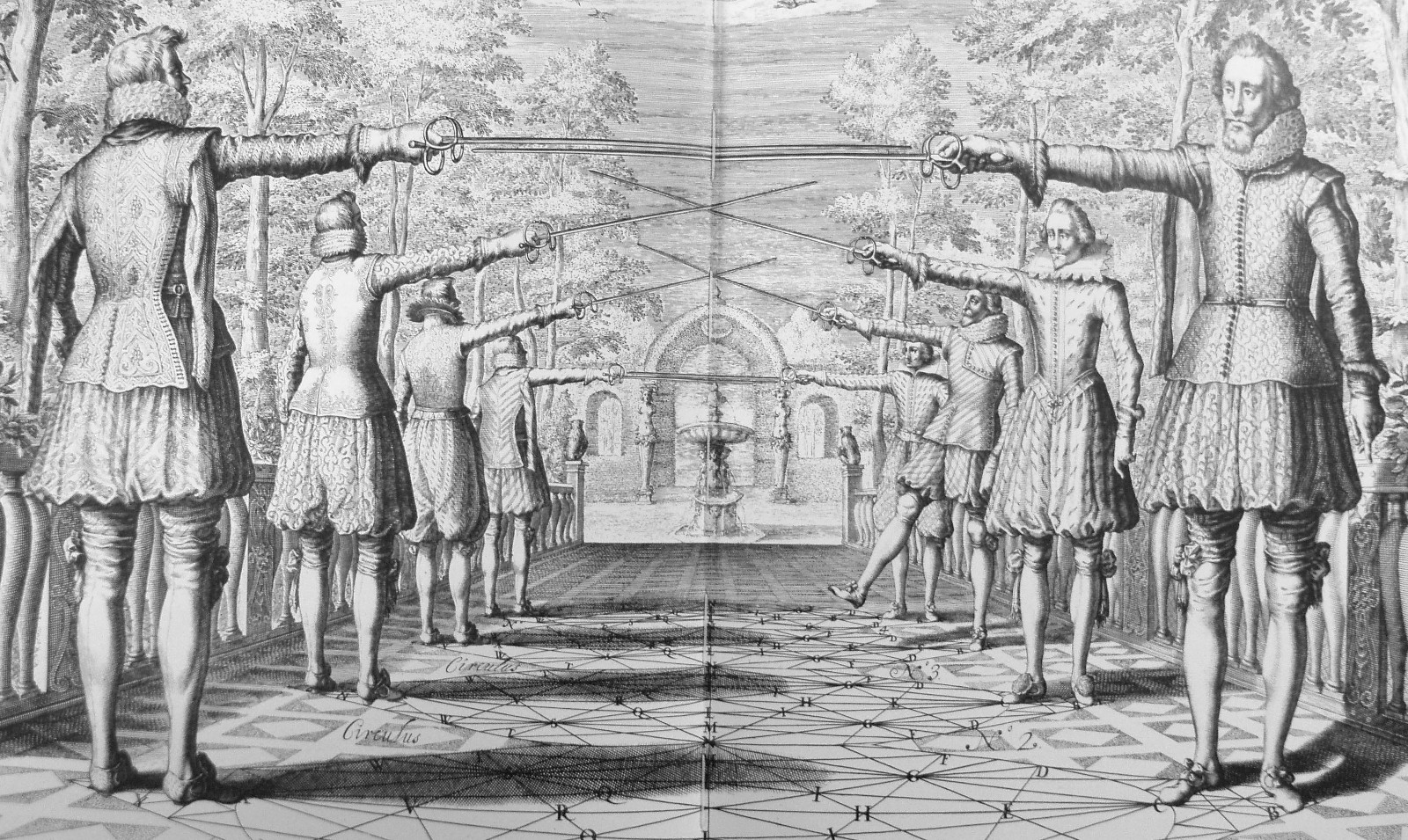Art emanates a contemplative nature as something thoughtful and meditative; thus action is not the first association to be made when we think of it.
In fact, the origin of the word Art points at another direction. Art, from 10th Century French, refers to a skill as the result of learning or practice; in Latin, artem means not only a practical skill but is also etymologically akin to the word arma, meaning weapon.
For centuries, weapons were not only battle tools and sidearms, but also fashion accessories and statements of taste and status, with their decorated hilts and belts that evolved alongside artistic movements and styles. Weaponry was such a big part of culture that designs were often engraved by famous artists, such as Hans Sebald Beham, and the handling of weapons was a big part of a European nobleman’s education, with tutors, classes, and books solemnly dedicated to the subject.
The Academy of the Sword, by Girard Thibault of Antwerp, is the most artistically accomplished fencing book, famous for its illustrations, signed by sixteen Flemish engravers, and supported by King Louis XIII of France.
Unfortunately, Thibault died shortly before the book’s publication. He spent his life obsessively composing a mathematical approach to swordplay, searching for precise geometric relationships between opposing swordsmen. Thibault composed a highly logical natural proportion of the battle space, expressed through a circular diagram that is still referred as the mysterious circle, all with an artistic vision and scientific inquisitive approach.
Though perhaps bizarre today, regarding battle as an art form wasn't new then: five centuries before Christ was born, the Chinese strategist and philosopher Sun Tzu wrote The Art of War, a book composed of 13 chapters, each devoted to one aspect of warfare. The Art of War is still relevant today, outside the military, for corporate strategists and entrepreneurs chasing their place in the market.
Although violent at places and times, our century is the most peaceful century civilized society had lived yet. Warfare is no longer part of children's curriculum, yet how many are terrorized by war? We should all be grateful for peace, never forgetting the horrors of war and rejecting those who claim its benefits.
Artur Deus Dionisio


 Girard Thibault of Antwerp
Girard Thibault of Antwerp